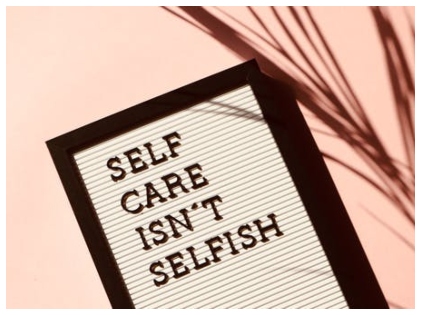
How to Deal With Change! Here’s Are Some Counsellor-Approved Tips to Cope With it!

 We experience various transitions in work and relationships, which impacts our physical and mental health. Sometimes we know that a change will occur, and at other times they come rather unexpectedly. Many people spend a lot of time avoiding change, but change is bound to catch up sooner or later. If you finally learn to cope with change, you will have a lower risk of anxiety and depression. Your relationship will continue to prosper, and your body will also start feeling healthier.
We experience various transitions in work and relationships, which impacts our physical and mental health. Sometimes we know that a change will occur, and at other times they come rather unexpectedly. Many people spend a lot of time avoiding change, but change is bound to catch up sooner or later. If you finally learn to cope with change, you will have a lower risk of anxiety and depression. Your relationship will continue to prosper, and your body will also start feeling healthier.
A counselor can help people walk through the various aspects of life and endure the various transitions of life with aplomb. Here are some steps that are going to help you with that.
Moderate Your Expectations
Adjusting to any big change may not happen overnight, and yes, there will be some adjustment issues in the initial phase. If the person is in the middle of a big change professionally or personally, the best thing to do is manage the expectations. It is the first major step. One has to recognize the change and then have to be kind to oneself. Realizing any change takes time and patience.
Focus on the Good Stuff

Sometimes, change may seem difficult because you may be going away from a place that offered you solace and comfort. It can also be your career or the security of a familiar home. These are pressing concerns, and you should not take them lightly.
But remember that focusing on the negatives and the past will not lead to a future that promises positivity. You have to be thinking of various opportunities that could also change that can significantly impact your state of mind and improve your optimism about the future.
Set Realistic Goals
Once a person starts looking for opportunities that can come with the transition period, setting goals is important. But set achievable goals. Set realistic, specific goals and develop a plan to complete the same. These are some of the best factors that bring about a successful change.
Self Care is a Must
 If it is a series of major changes leading to depression linked with a loss, it becomes hard for the person to undergo. But small acts of self-care can be the best bet for people like them. Although self-care may be the last thing on their minds, this is the only thing that will bring about a positive change in this transitionary phase.
If it is a series of major changes leading to depression linked with a loss, it becomes hard for the person to undergo. But small acts of self-care can be the best bet for people like them. Although self-care may be the last thing on their minds, this is the only thing that will bring about a positive change in this transitionary phase.
Accept the Change
While acceptance is the hardest part of it, it’s the only way a person can go through the various troughs of life. The sooner people accept that fact, the sooner they will handle the resulting emotions better. Finding it hard to accept the decision to change and move forward will only make it harder still.
Counselors say that sometimes people hesitate to make decisions because the other options are gradually eliminated once they choose. This hesitancy will make it difficult for the person to move away from the current state. And then, it would stop them from moving away from the rut they find themselves entrapped in.
Keep Moving

Change is inevitable, and since you continue to hate and fear small big changes in your life, keeping all the major life decisions to a grinding halt, you have to move away from that space. Sometimes in situations like these, you have to take decisive actions, which may be difficult.
But it is important to make a decision better than wishing it to end or disappear. Your problems will not disappear into thin air. Once you start acting on adversity, it will help develop resilience, which can help your clients deal with the hardships better now and in the future.
When it is difficult to grapple with the current situation, it is always best to seek a qualified practitioner. You may be clueless and feel you are getting lost in the current situation. But a practitioner will know exactly how to give you the perfect solution to move on with hope and positivity. Before you realize it, your life will be on track, and you will no longer be anxious about the turn of events in life. And soon, as you would be optimistic about change.
More in Family Counseling
-
`
5 Reasons Why Dad’s Side of the Family Misses Out
Family bonds are intricate and multifaceted, often creating a unique tapestry of connections. However, many people notice a peculiar trend: stronger...
July 12, 2024 -
`
A Quick Guide on How to Get Short-Term Disability Approved for Anxiety and Depression
Living with anxiety or depression poses unique challenges, particularly in the workplace, where stress can exacerbate symptoms. For many, short-term disability...
July 5, 2024 -
`
Why Do People Feel Sleepy After Eating?
Is feeling sleepy after eating a sign of diabetes? Well, not directly. There are many reasons why you feel drowsy after...
June 20, 2024 -
`
What Is High-Functioning Depression? Symptoms and Treatment
High-functioning depression may not be a term you hear every day, but it’s a very real and challenging experience for many....
June 13, 2024 -
`
Kelly Clarkson’s Weight Loss Ozempic Journey – Debunking the Rumors
In a refreshing moment of transparency, Kelly Clarkson, the beloved singer and talk show host, sheds light on her remarkable weight...
June 3, 2024 -
`
What Is the Best Milk for Gut Health and Why?
In recent years, the milk section at the grocery store has expanded far beyond the traditional options. While cow’s milk has...
May 30, 2024 -
`
Do Dental Implants Hurt? Here’s All You Need to Know
When you hear “dental implants,” you might wince at the thought of pain. But do dental implants hurt as much as...
May 24, 2024 -
`
5 Key Differences Between A Psych Ward & A Mental Hospital
Curious about the differences between a psych ward and a mental hospital? You are not alone. With the mental health conversation...
May 16, 2024 -
`
It’s Official! “Selling Sunset’s” Christine Quinn & Husband Christian Dumontet Are Parting Ways
Have you ever found yourself unexpectedly engrossed in the personal lives of celebrities, especially when their stories take dramatic turns? Well,...
May 9, 2024










You must be logged in to post a comment Login